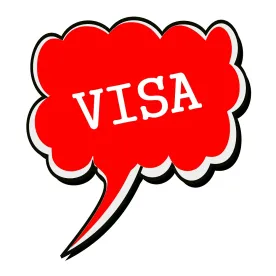On Wednesday, October 28, 2020, the Department of Homeland Security (DHS) announced another proposed change to the H-1B visa program. The new rule would do away with the random lottery system currently used to issue the annual quota of 85,000 H-1B visas and replace it with a new lottery system weighted to favor applications with higher wages.
The Current H-1B Lottery Program
The H-1B visa is the workhorse of the U.S. immigration system; used by employers seeking to fill high-skilled jobs (called “specialty occupations”) that require, at a minimum, a bachelor’s degree in a related field.
H-1B workers must be paid a “required wage,” which is the higher of either (1) the salary paid to other U.S. workers in the same role and location or (2) the prevailing wage for the job in the same location. Prevailing wages can be obtained in several ways, including using private wage surveys, but the vast majority of H-1B petitions rely on the Department of Labor’s (DOL) Occupational Employment Statistics (OES) program, which gathers salaries for hundreds of job categories across specific geographic areas. Those wages are broken into four “Wage Levels” (I, II, III, and IV), depending on the complexity and experience required by the role, ranging from Level I for mainly entry level workers to Level IV for experts and experienced leaders.
Because there are far more applicants each year than the 85,000 new H-1B visas available (20,000 of these are reserved for applicants with an advanced degree from a U.S. university, called the “Master’s Cap”), DHS long ago implemented a random lottery to determine who can apply for an H-1B visa. The employer now completes an electronic registration for each potential H-1B employee and if the registrant is selected, the employer files the H-1B petition. In 2020, nearly 275,000 H-1B registrations were submitted to the electronic lottery, meaning would-be applicants had approximately a 31 percent chance of being selected to even have their H-1B petition adjudicated.
Although the odds are poor, the random nature of the current system provides every registrant the same chance of selection.
Proposed DHS Changes and Effects on Employers
The new program would alter the existing lottery system by prioritizing registrants with the highest OES Wage Level, with Level IV petitions being selected first, then Level III, and so on, until all of the visa slots are filled.
Once there are enough registrants in a Wage Level to exhaust the remaining petitions, then a random mini lottery would be held among that Wage Level’s registrants to complete the allotment. In other words, if all but 10,000 visas are used by Levels III and IV, and there were still 20,000 Level II registrants, the remaining slots would be randomly divided among the Level II petitions via lottery, with no Level I registrants qualifying.
Prevailing wages obtained from private wage surveys would be slotted into the corresponding OES Wage Level, with any lower than the OES Wage Level I being marked “Wage Level I and below”.
All of the H-1B registrants would first be run though the new process to fill the 65,000 standard H-1B openings and then those remaining unselected registrants with advanced US degrees would be run through the 20,000 Master’s Cap allotment, also using the new wage-weighted process.
If there are not enough petitions to require a lottery, then the wage levels wouldn’t be considered until the last day that the quota is filled, when a mini-lottery would be used to select only from among that day’s petitions based on the Wage Level ranking. This is unlikely since a lottery has been held for the past eight years with no signs of stopping.
Once an H-1B visa has been issued, even under current practices, the visa holder is considered to be “counted against the cap” and does not have to resubmit to the lottery for future extensions or changes in employer as long as the H-1B visa holder has not exceeded the total years permitted in H-1B status. As a result, the proposed changes should not affect current H-1B visa holders.
DHS claims the rule change is necessary and consistent with the H-1B program’s original intent and the president’s calls to protect U.S. workers, root out visa fraud, and focus on the “best and the brightest” when issuing U.S. visas. DHS argues that the weighted lottery will incentivize recruitment of “positions requiring the highest skill levels” or “earning the highest wages”, and that either if fine since “salary generally is a reasonable proxy for skill level.” Essentially, the more you offer to pay, the higher skilled the person must be.
Critics of the administration see these changes as the most recent in a series of moves to significantly slow legal immigration. These include both legal and de facto actions such as rule changes, unpublished heightening of adjudication standards that have led to severe increases in denial rates across all visa categories, and shutting down or curtailing visa interviews at U.S. Embassies and Consulates before and during the COVID pandemic, among other moves. It is increasingly more difficult to obtain nearly any type of visa.
The H-1B program is been widely used to hire many entry-level positions, particularly in STEM-related industries where there has been a dearth of U.S. citizen applicants. In practice, the proposed rule change would likely exclude tens of thousands of applicants in positions that are considered entry-level or that require lower levels of experience, potentially excluding at least all Level I petitions. The new rule would also disfavor smaller companies who can pay the traditional “required wage,” but may be unable to offer salaries to match the higher offers from larger competitors.
This and other recent changes will also likely speed the COVID-induced exodus of high-skilled jobs from larger, urban areas to smaller cities and remote work outside metropolitan areas, where a Level IV wage is significantly lower. Ironically, this and other proposed changes meant to protect U.S. workers add significant cost and uncertainty to employers who are unable to find qualified U.S. workers and may directly contribute to increases in overseas outsourcing of jobs and operations.
Timing and Challenges
On October 6, 2020, DHS and DOL announced H-1B rule changes drastically altering who qualifies for the H-1B and elevating the prevailing wage levels for H-1B petitions. Those earlier changes, which we outlined in a blog post, were issued using the expedited Interim Final Rule process, which skips the standard notice and comment periods for rule making. Interim Final Rules are generally more susceptible to legal challenges and a court case was filed within days of the earlier riles being released seeking to stop their implementation.
This Wednesday’s DHS H-1B rule is issued under standard rule making procedures and will therefore be subject to the months-long notice and comment periods before it can go into effect. Whether or not the rule will be in place before the new H-1B lottery is held in March 2021 will depend on a combination of election results and likely court cases filed to stop it. The rule will be more insulated from litigation than the prior October rules, but given the size and scope of Wednesday’s rule’s impact, opposition in the courts and by government outreach will surely come.




 />i
/>i
